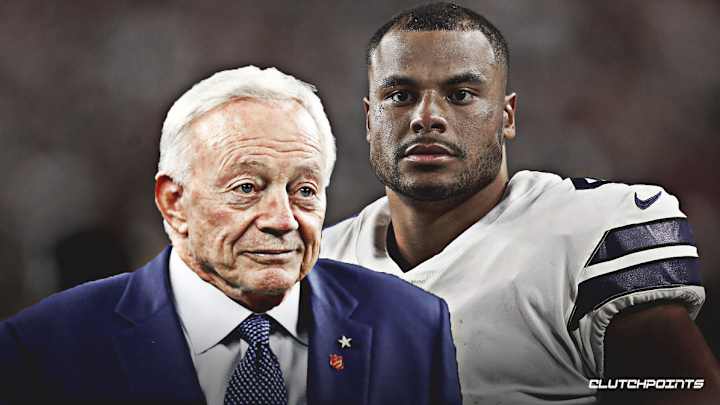Cowboys vs. Dak: The Final Obstacle to Finalizing a New Contract

FRISCO - Is there simply one final obstacle to the Dallas Cowboys and quarterback Dak Prescott reaching agreement on a long-term contract?
Dallas had until 10:59 a.m. Monday to forge a new deal with Prescott before utilizing the franchise tag. That tool is in place to allow the continuation of negotiations - negotiations that like most are about three major categories: Guaranteed money, average-per-year salary, and the years of the contract.
In Prescott's case, we know that the guaranteed money offered is in excess of $105 million. We know that compares favorably with the top guarantees to QBs in the NFL; Seattle's Russell Wilson is at $107 million guaranteed. Philadelphia's Carson Wentz is $108 million. And the most recent signee, Los Angeles' Jared Goff, is at $110 million.
So Dallas' offer to Dak is already in that range, in terms of guarantees.
What about APY? Wilson has the highest average salary in the NFL at $35 million. We know the Cowboys have discussed with Prescott something in excess of $33.5 mil APY, which exceeds Wentz' $32 mil and matches Goff's.
So again, the very top is in range.
What's missing?
Certainly there can be more devil in more details. But of the Big Three issues, that only leaves years. We've written since September that the Cowboys, conventionally, would want this to be a six-year agreement, while Prescott, given the fact that the NFL's TV contract is set to expire after the 2022 season (meaning an exploding-upward cap), would ideally want to sign for only three (as long as he gets that guaranteed dough).
And there is it. The Cowboys and Prescott can be down to relative pennies (billions of pennies, but still) on guarantees and APYs; on a five-year contract, the difference between Dallas giving Dak, say, $106 mil vs. $109 mil is negligible.
And all of that leaves one obstacle.
This is the complication that curve-balls all the criticism, toward both parties, regarding the absence of a deal. The framework is in place for the guarantees. The framework is in place for the APY. But years? Four vs. five? That's a gigantic issue - maybe the only remaining one, but gigantic nevertheless.
